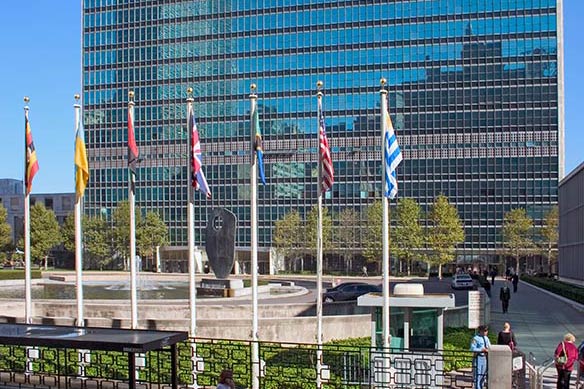The United States is quietly lobbying to establish a United Nations special investigator on human rights abuses in Iran, for the first time in a decade, diplomats and activists said Thursday, Reuters reported.
The U.S. delegation to the U.N. Human Rights Council has sought support from countries in all regions for a draft resolution that would put Iran's government back in the international limelight for alleged violations, they added.
U.S. Secretary of State Hillary Clinton and Iranian Foreign Minister Ali Akbar Salehi are to address the 47-member forum on Monday at the start of a three-week session. The two countries are at odds over Iran's nuclear program which Washington and its allies fear is aimed at developing atomic weapons.
"The Americans are fairly determined to have a mandate created for a special rapporteur on the situation in Iran. It would be a strong symbolic and political signal," said one Western envoy.
The European Union supports the move, in view of persecution of human rights defenders in Iran and the sharp rise in the number of executions since the start of the year, he said. The EU bloc has seven members on the Council.
But Iran and its allies among developing countries are expected to denounce the resolution and demand it be put to a vote rather than be adopted by consensus, diplomats said.
"It should pass. We would expect about one-third of the states to be in favor, one-third against and one-third to abstain," the Western envoy said.
The U.S. diplomatic mission in Geneva declined to specifically confirm the move, but voiced concern at the human rights situation in Iran saying it had deteriorated significantly since a contested presidential election in 2009.
"We are discussing with other members of the council on appropriate next steps to support Iranian human rights and express solidarity with the people in Iran who seek to exercise those rights freely and without fear," a U.S. spokesman in Geneva told Reuters in response to an inquiry.
Iran had persistently refused to cooperate with existing U.N. investigators on specific themes, creating concern in the council that focused action on Iran may be warranted, he said.
"The Americans are trying to get everything in place so it works. It is very much their initiative," one human rights activist told Reuters.
Since Iran's 2009 presidential election, hundreds of reformists have been detained and put on trial in a crackdown on the pro-reform opposition. The election was followed by street protests, the most serious unrest since the Islamic Republic was founded in 1979. The state quashed the turmoil, blaming it on "seditionists" backed by its foreign enemies.
Mass detentions and trials followed the vote and two people were executed. The opposition says the vote was rigged but the authorities have strongly denied allegations of fraud.
Iran has witnessed a dramatic increase in executions so far in 2001, the U.N. human rights office said earlier this month. The rate was three times that of last year, with at least 66 people executed in January, it said.
The Council's predecessor body, the U.N. Human Rights Commission, had a series of special rapporteurs on Iran from 1984 to 2002. The last independent U.N. investigator, Maurice Capithorne of Canada, was last allowed into the country in 1996.






